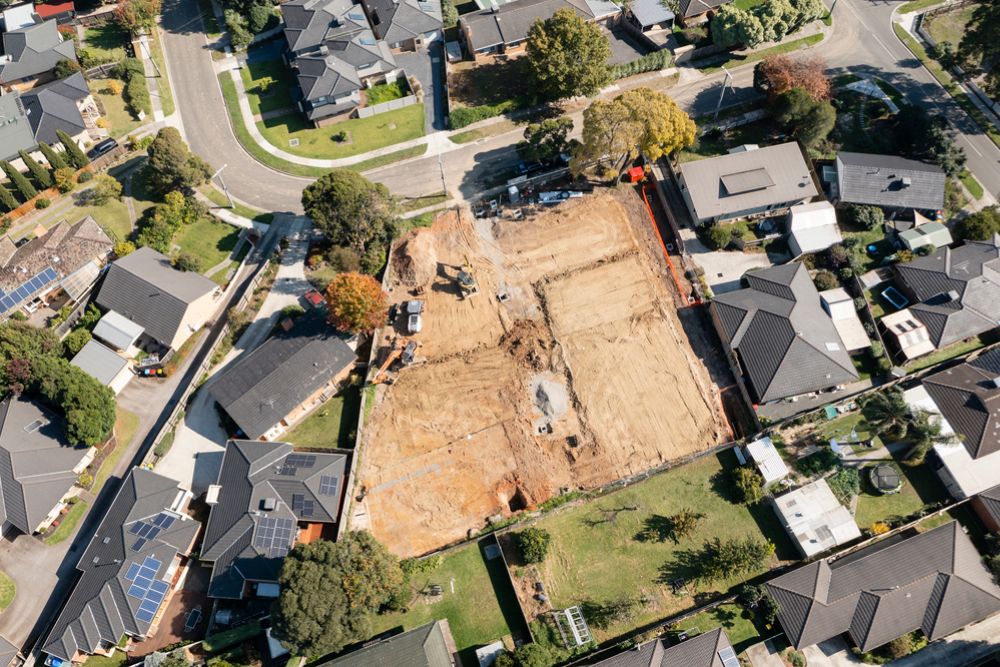Buying land can be a rewarding investment, whether you plan to build your dream home, start a business, or simply hold the property as an asset. However, purchasing land is vastly different from buying a house—it requires careful consideration, thorough research, and a clear understanding of potential challenges. Without proper preparation, you might face unexpected costs, legal issues, or land-use restrictions that could derail your plans.
This comprehensive guide will walk you through everything you need to know before buying land and offer practical tips to help you make an informed, confident decision.
1. Identify Your Purpose for Buying the Land
Before you start searching for land, clarify your intentions. The purpose of your purchase will influence the location, size, zoning regulations, and infrastructure requirements.
Common Reasons for Buying Land:
- Residential Development: Building a home or multi-unit property.
- Commercial Investment: Establishing a business or rental property.
- Agricultural Use: Farming, livestock, or orchards.
- Recreational Purposes: Hunting, camping, or building a vacation retreat.
- Land Banking: Buying and holding land as a long-term investment.
Tip:
Speak with a local real estate agent who specializes in land sales to understand area-specific factors like zoning laws, development potential, and market trends.
2. Research Zoning Laws and Land Use Restrictions
Zoning laws dictate how you can use your land. Each municipality has zoning regulations that categorize land for residential, commercial, agricultural, or mixed-use purposes.
Steps to Verify Zoning Information:
- Visit your local planning or zoning department.
- Request a copy of the zoning map and ordinance for the property.
- Confirm whether the land is subject to special designations, such as environmental protection areas.
Key Zoning Types to Know:
- Residential (R): For single-family homes, multi-family units, or apartments.
- Commercial (C): For retail shops, offices, or industrial facilities.
- Agricultural (A): For farming, ranching, or agribusiness.
- Mixed-Use (MU): Allows both residential and commercial activities.
Tip:
If you plan to change the zoning designation (e.g., converting farmland into a residential area), consult with a zoning officer beforehand. Rezoning can be costly and time-consuming.
3. Analyze the Location and Surrounding Environment
The land’s location significantly impacts its value, usability, and future development potential.
Factors to Consider:
- Proximity to amenities: Schools, hospitals, grocery stores, and public services.
- Accessibility: Roads, highways, public transport availability.
- Neighborhood development: Is the area growing or declining?
- Topography and soil quality: Essential for construction, agriculture, or landscaping.
Tip:
Visit the site at different times of the day to observe traffic patterns, noise levels, and neighboring activities.
4. Evaluate Access and Easements
Having legal and physical access to the property is essential. Some land parcels are landlocked, meaning they lack direct access to a public road.
What to Check:
- Road access: Confirm if there’s an existing driveway or public road access.
- Easements: Ensure that utilities and neighboring properties don’t have restrictions that impede your land use.
- Right-of-Way Agreements: If you need to cross another property, check for a recorded easement.
Tip:
Consult a land surveyor or title company to review easements and access rights before finalizing the purchase.
5. Conduct a Comprehensive Land Survey
A land survey verifies the property’s boundaries, size, and topographical features. It helps you avoid disputes with neighbors and ensures you know exactly what you’re purchasing.
Types of Land Surveys:
- Boundary Survey: Confirms property lines.
- Topographic Survey: Maps natural and man-made features (e.g., hills, water bodies).
- ALTA Survey (American Land Title Association): Provides detailed property information for title insurance purposes.
Tip:
Hire a licensed surveyor and request a detailed, stamped copy of the survey.
6. Investigate Soil Quality and Environmental Factors
Soil conditions can significantly affect your land’s construction potential, agricultural productivity, and environmental compliance.
Tests to Conduct:
- Soil Composition Test: Determines soil stability and drainage capabilities.
- Percolation Test (Perc Test): Required if you plan to install a septic system.
- Environmental Site Assessment (ESA): Identifies potential contamination or hazardous materials.
Tip:
If the land has been previously used for industrial or agricultural purposes, an ESA can reveal contaminants that require costly remediation.

7. Verify Utility Availability and Installation Costs
Raw land often lacks basic utilities like electricity, water, sewer, and internet access. Installing these services can add thousands of dollars to your investment.
Key Utilities to Investigate:
- Water Supply: Is there access to municipal water, or will you need a well?
- Sewer System: Can you connect to a public sewer line, or will you need a septic tank?
- Electricity and Gas: Check with local utility companies for connection fees.
- Internet and Phone Service: Essential for both residential and commercial uses.
Tip:
Request an estimate from utility service providers to budget for installation costs.
8. Examine Title, Deeds, and Legal Restrictions
Land ownership must come with a clear, dispute-free title. Issues like unpaid taxes, liens, or boundary disputes can complicate your purchase.
Steps to Ensure a Clean Title:
- Hire a title company to conduct a title search.
- Review the chain of ownership to identify potential red flags.
- Purchase title insurance to protect against future claims.
Watch Out for:
- Restrictive covenants: Rules imposed by a homeowners’ association (HOA) or local authority.
- Encroachments: Structures from neighboring properties that extend into the land.
- Historic or environmental designations: May limit modifications or development.
9. Calculate Total Costs Beyond the Purchase Price
The purchase price is just one part of the overall cost. Land ownership involves ongoing expenses and potential development costs.
Additional Costs to Consider:
- Property taxes: Vary significantly by location.
- Survey and inspection fees: Can cost $500 to $2,000 depending on the land size.
- Utility connections: Installing water, electricity, and sewer can cost thousands.
- Permits and impact fees: Required for construction or land-use changes.
- Insurance: Landowners may need liability insurance, flood insurance, or title insurance.
Tip:
Create a detailed cost breakdown to avoid unpleasant surprises.
10. Explore Financing Options
Financing land differs from financing a home. Land loans often have higher interest rates, larger down payments, and shorter terms than traditional mortgages.
Common Land Loan Options:
- Raw Land Loans: For undeveloped land. Requires a high credit score and significant down payment (30-50%).
- Improved Land Loans: For land with some utilities or infrastructure. Easier to finance than raw land.
- Construction Loans: Combines land purchase and building costs. Converts to a mortgage upon project completion.
Tip:
Compare rates from local banks, credit unions, and online lenders. Specialized land lenders often offer better terms than traditional banks.
11. Assess Future Development Potential
Even if you plan to use the land immediately, understanding its future potential can enhance its value.
Key Factors to Evaluate:
- Planned infrastructure projects (new roads, schools, or commercial developments).
- Population growth trends in the area.
- Local government master plans for rezoning or redevelopment.
Tip:
Contact the local planning office to obtain information about upcoming projects that could increase or decrease your land’s value.
12. Work with Qualified Professionals
Land purchases involve complex legal, environmental, and financial considerations. Relying on professional guidance can save you time, money, and stress.
Professionals to Consult:
- Real Estate Agent: Specializes in land transactions.
- Surveyor: Verifies boundaries and topography.
- Environmental Consultant: Assesses soil and environmental factors.
- Real Estate Attorney: Reviews contracts, deeds, and legal requirements.
- Mortgage Broker: Advises on financing options.
Tip:
Choose professionals with experience in land transactions rather than general real estate.
Final Checklist: Essential Questions Before Buying Land
- What is the land’s current and future zoning classification?
- Are there any environmental risks or contamination issues?
- Is there legal access to the property via a public or private road?
- What utilities are available, and what will installation cost?
- Are there any liens, encumbrances, or title disputes?
- How much are property taxes, and are there any special assessments?
- What permits are required for my intended use of the land?
- Does the land have good resale value based on location and trends?
Make an Informed Decision
Buying land can be a smart investment and a fulfilling endeavor if approached with careful planning and due diligence. Understanding zoning regulations, conducting thorough surveys, verifying title records, and budgeting for hidden costs are essential steps to avoid future headaches.
By following these tips and seeking guidance from experienced professionals, you can confidently choose the right land for your needs and secure a solid foundation for your future plans.

